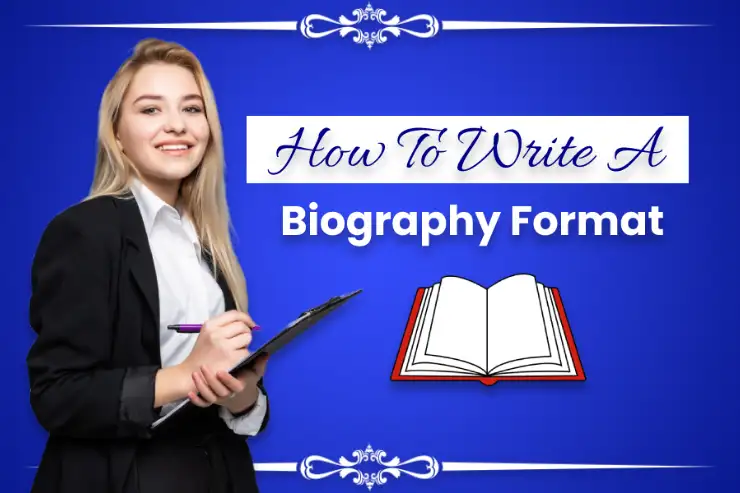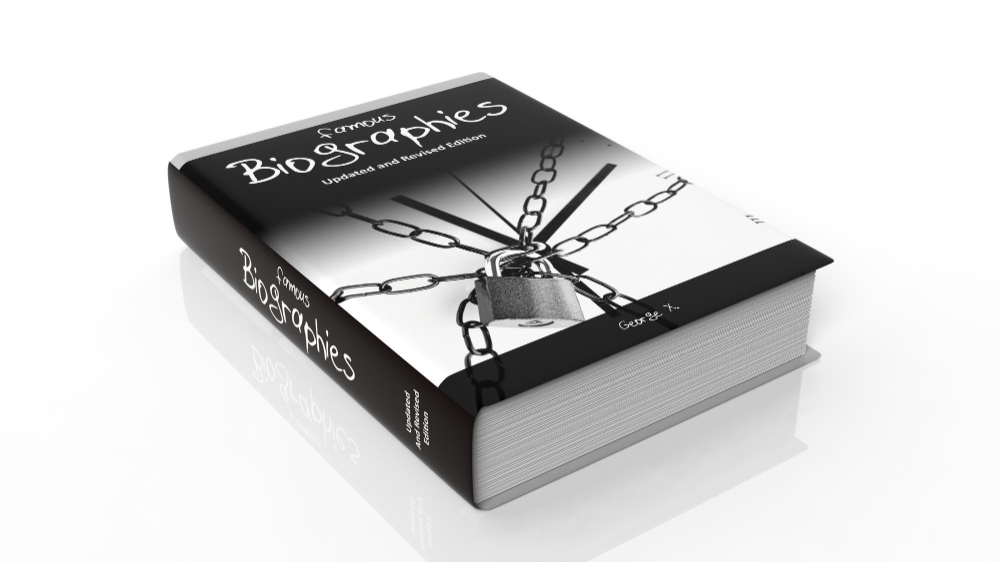Biographies are a great way to share your knowledge with the world. You can write a format of biography in any field of your choice. But they’re particularly useful for fields like medicine or business. Biography writing services help you get started on writing a biography format by offering an outline of how each part should look and feel. When it’s finished. This guide will show you what is required when creating an autobiography or autobiography template and how to create one yourself using our templates!
Table of Content
- What is a Biography
- Biography Writing Format
- How to write a biography?
- Outline of a Biography
- Significance of biography
- Biography Writing Services
- Guide on biography
- FAQ
What is a Biography?
A biography is an account of an individual’s life written by another person. It can be as long or short as you want it to be. But the most common length is around 1,000 words.
A biography can be comprehensive or selective, depending on what you’re trying to accomplish with your project. You might include all the details about your subject’s childhood and adolescence in one section; then later cover only certain aspects such as their work history or love life during those same periods; or perhaps even focus entirely on one topic (like “Career Paths”).
Why is it important to follow a proper Biography Writing Format?
Following a proper Biography Writing Format will help you organize your thoughts and avoid errors. When you follow a proper format. It’s much easier to see where you are in the process of writing your biography. This can be especially helpful when writing a series of biographies as opposed to one long-form piece on someone. Who has been dead for many years. It also helps keep track of all of the different topics that need covering during each step in the process (e.g., “How did my subject meet his spouse?”).
A good Biography Writing Format will also make it easier for others reading over your work before the publication date because they will be able to understand what’s going on when reading through each chapter or section within those chapters! 
How to write a biography: the format and layout
There is no standard format for writing a biography. But there are some useful guidelines to follow. The most important thing is to make sure you include the following information:
A summary of your subject’s life and achievements (including major events or milestones). This should ideally be the first section of your work.
People who have helped the person succeed (involving family and friends). Because only people who have been with you closely are the best resources for you to write a biography.
Outline of a Biography Writing Format
The outline of a biography writing is straightforward. It consists of the following:
- Introduction
- Body (including the main facts, events and people)
- Conclusion (what you found out about your subject)
The introduction should include some background information about your topic. So that readers know what they’re getting into. It can also help them understand. Why this particular person or group is important in history. Then you move onto their life story and what made them special for this time period. Finally, you wrap up with conclusions about their legacy to society today. This includes any recommendations on how we can continue using similar strategies today as well!
Significance of biography writing services
A biography is a written account of the life of an individual. It can be a part of a more considerable work like an autobiography or self-help book or stand alone as a single document. Biographies are often written by professional writers. Who specialize in biographies and may include specific research into their subject’s life. Such as interviewing family members or conducting background checks on public records.
Primary Writing services do not provide biography writing service. But with Aimlay, you can engage with top writers who are experienced professionals as they understand what you need.
Aimlay has the best Biography Writing Services
We have the best biographers and editors in the business. We can help you in writing in your Biography format or language, from traditional paper to digital. Whatever you need, we’re here to help!
Having enclosed a biography that can be of great use to your generations and close ones. They can have an emotional asset of you becoming something people take inspiration from. Your children could learn how their parents struggled through all the issues and became the man/woman who made them the best.
This guide on biography writing will help you write an excellent biography format
This guide on biography writing will help you write an excellent biography format.
You can use this guide to create an excellent biography and impress your readers with your subject knowledge. The focus will also teach you how to format your work which is essential because it gives readers an idea of what they’ll get when they open your book.
We’d like you to consider us if you’re looking for an outstanding biography writing service. We have a team of expert writers who will help you with your work according to your requirements and deadlines. If you want to write it yourself but don’t know where to start, get in touch with us today!



